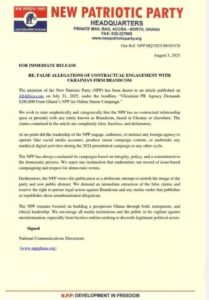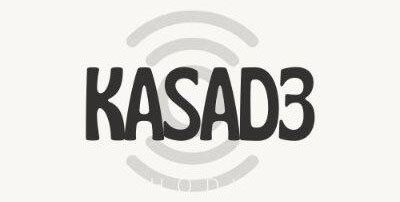The New Patriotic Party (NPP) has strongly refuted claims of engaging a Ukrainian PR agency, Brandcom, to conduct an online smear campaign during the 2024 presidential elections.

The party’s response comes after an article published on AllAfrica.com alleged that Brandcom demanded $280,000 from the NPP for services rendered.
In an official statement, the NPP described the report as “completely false, baseless, and defamatory,” emphasizing that it has never had any contractual relationship with the said firm or authorized such unethical activities.
The NPP reiterated its commitment to ethical campaigning, stating that its electoral strategies have always been grounded in integrity and policy-driven discourse.
The party condemned the publication as a deliberate attempt to damage its reputation and undermine public trust. It demanded an immediate retraction of the allegations and warned of potential legal action against Brandcom and media outlets spreading the claims.
This incident highlights the challenges political parties face in combating misinformation, especially in the digital age. The NPP’s swift denial underscores its efforts to maintain transparency and accountability in Ghana’s political landscape. As the party moves forward, it remains focused on its mission to promote development and democratic values, urging the media and public to verify information.
This incident reflects a broader trend in Ghana’s political landscape, where parties frequently clash with media over allegations of misinformation and defamation. Across the spectrum, political actors have accused news outlets of publishing unverified claims, while journalists often face pressure to retract stories or risk legal action.
The NPP’s threat of litigation mirrors similar disputes involving other parties, underscoring the tense relationship between Ghana’s political elite and the press.



